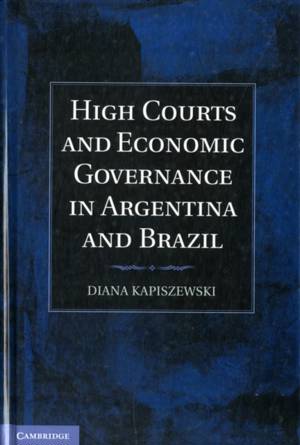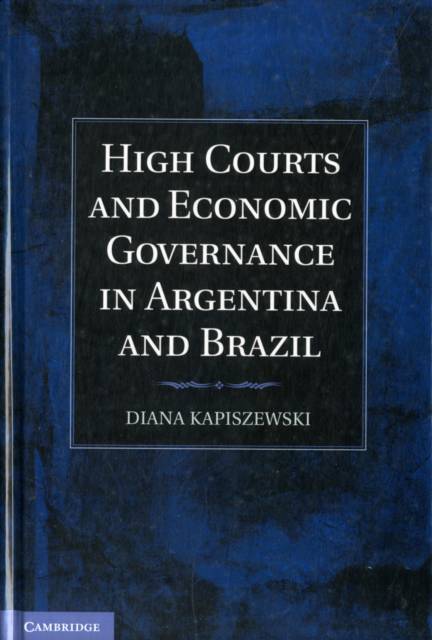
Door een staking bij bpost kan je online bestelling op dit moment iets langer onderweg zijn dan voorzien. Dringend iets nodig? Onze winkels ontvangen jou met open armen!
- Afhalen na 1 uur in een winkel met voorraad
- Gratis thuislevering in België vanaf € 30
- Ruim aanbod met 7 miljoen producten
Door een staking bij bpost kan je online bestelling op dit moment iets langer onderweg zijn dan voorzien. Dringend iets nodig? Onze winkels ontvangen jou met open armen!
- Afhalen na 1 uur in een winkel met voorraad
- Gratis thuislevering in België vanaf € 30
- Ruim aanbod met 7 miljoen producten
Zoeken
€ 132,95
+ 265 punten
Omschrijving
High Courts and Economic Governance in Argentina and Brazil analyzes how high courts and elected leaders in Latin America interacted over neoliberal restructuring, one of the most significant socioeconomic transformations in recent decades. Courts face a critical choice when deciding cases concerning national economic policy, weighing rule of law concerns against economic imperatives. Elected leaders confront equally difficult dilemmas when courts issue decisions challenging their actions. Based on extensive fieldwork in Argentina and Brazil, this study identifies striking variation in inter-branch interactions between the two countries. In Argentina, while high courts often defer to politicians in the economic realm, inter-branch relations are punctuated by tense bouts of conflict. Brazilian courts and elected officials, by contrast, routinely accommodate one another in their decisions about economic policy. Diana Kapiszewski argues that the two high courts' contrasting characters - political in Argentina and statesman-like in Brazil - shaped their decisions on controversial cases and conditioned how elected leaders responded to their rulings, channeling inter-branch interactions into persistent patterns.
Specificaties
Betrokkenen
- Auteur(s):
- Uitgeverij:
Inhoud
- Aantal bladzijden:
- 300
- Taal:
- Engels
Eigenschappen
- Productcode (EAN):
- 9781107008281
- Verschijningsdatum:
- 24/09/2012
- Uitvoering:
- Hardcover
- Formaat:
- Genaaid
- Afmetingen:
- 160 mm x 231 mm
- Gewicht:
- 566 g

Alleen bij Standaard Boekhandel
+ 265 punten op je klantenkaart van Standaard Boekhandel
Beoordelingen
We publiceren alleen reviews die voldoen aan de voorwaarden voor reviews. Bekijk onze voorwaarden voor reviews.











